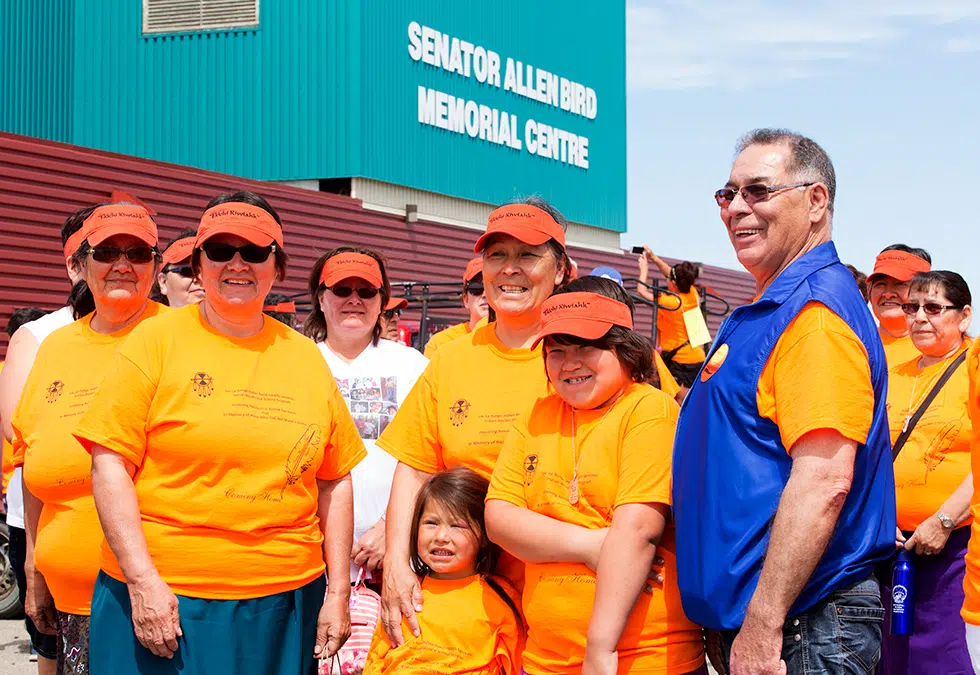
Residential School survivors find comfort and healing in each other
A group of residential school survivors are taking steps towards their own healing process by walking away from the place which they say has caused them so much grief.
A group of about 70 residential school survivors and their families departed from the Senator Allen Bird Memorial Center on their way to La Ronge and Stanley Mission. In the first event of its kind, former students left from their former school grounds on their own accord.
Tom Roberts, a former CBC radio host handled the PR for the commemorative walk. He himself is a residential school survivor, having attended Prince Albert Indian Residential School until he was 16. Almost 50 years ago today, he was bussed off of the school grounds for the last time.
“We never actually left on our own accord… today is about doing just that. Taking control of ourselves, and walking home on our own,” Roberts said.


